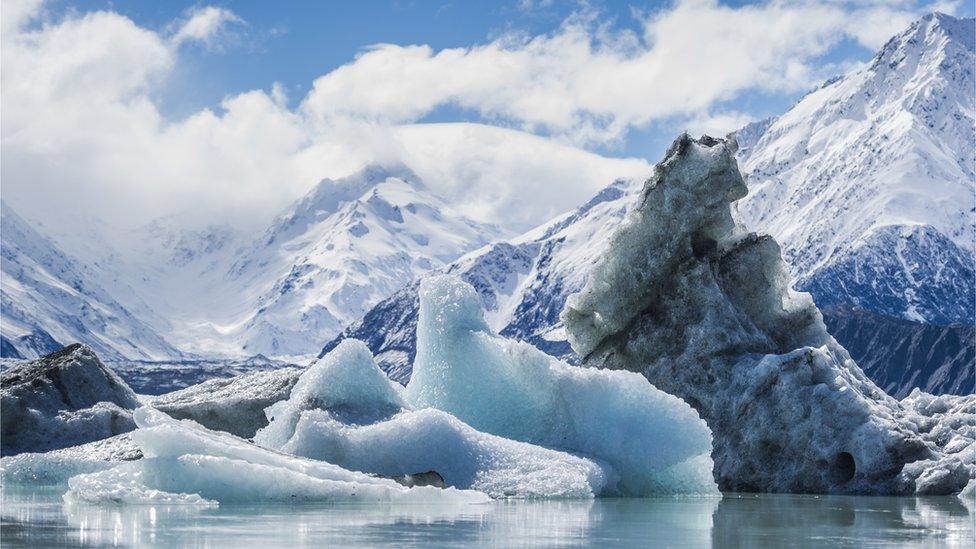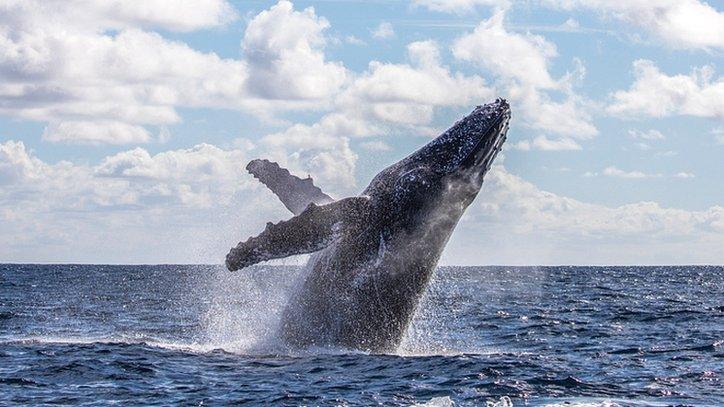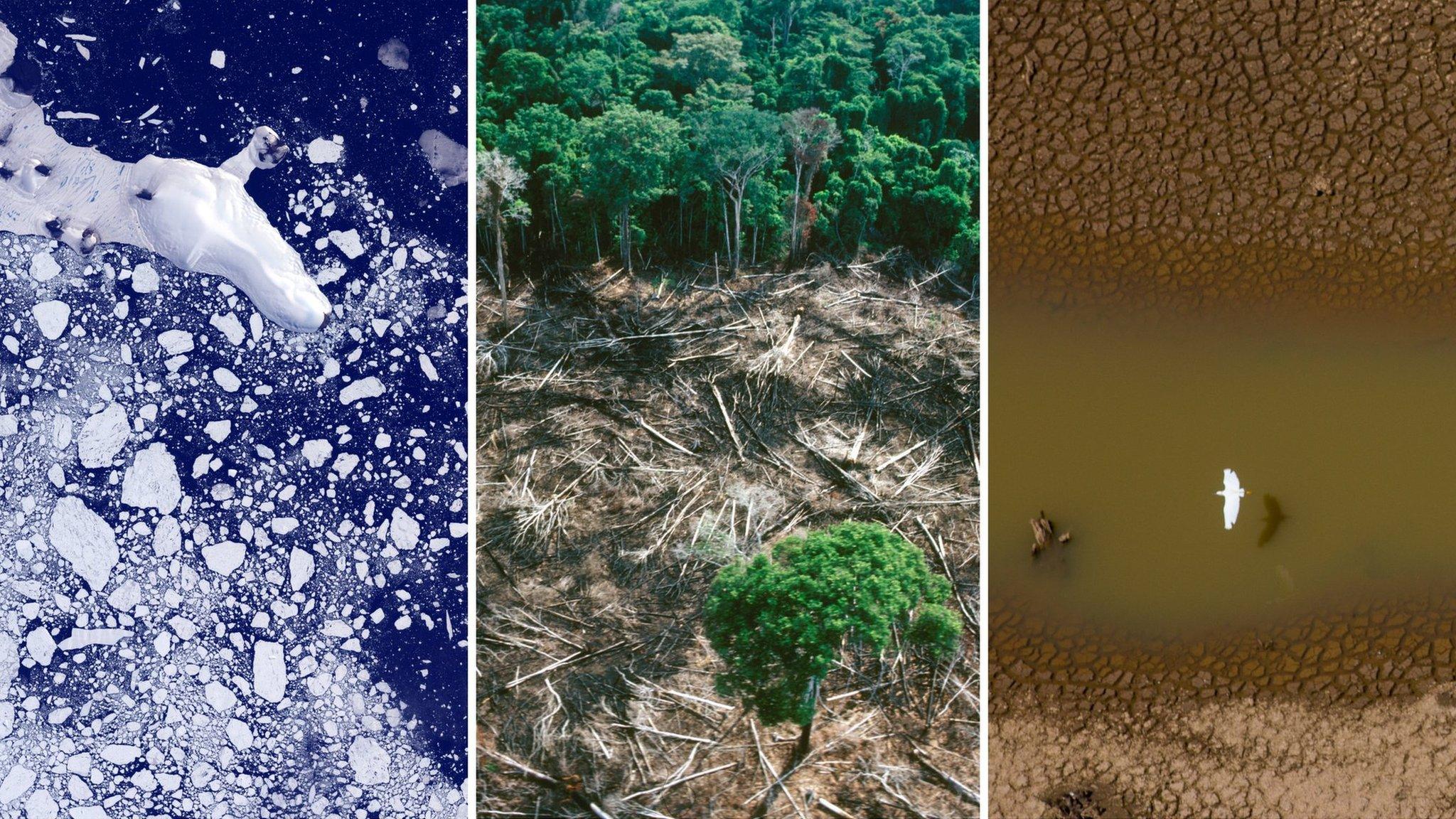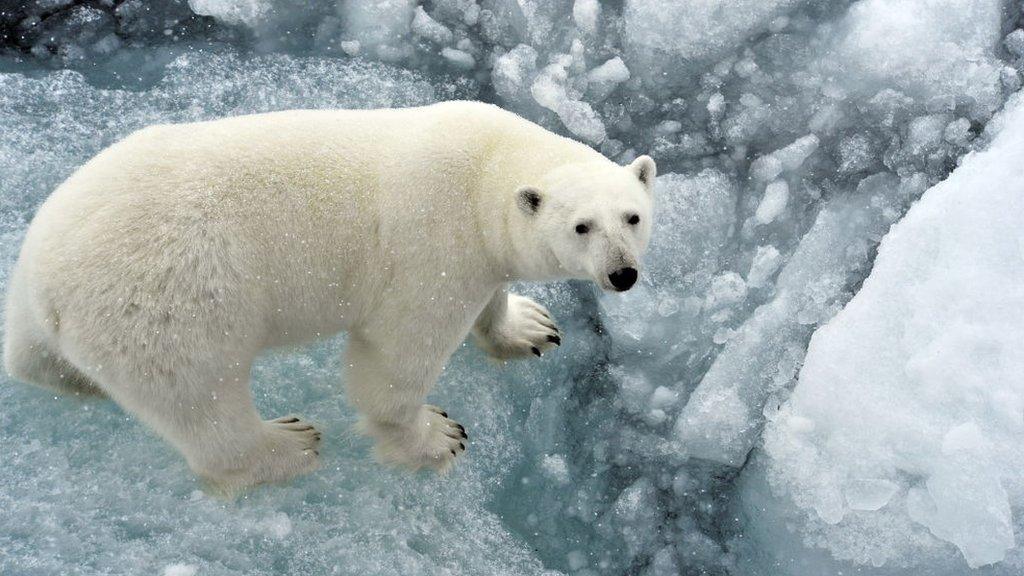Climate change: New way to suck carbon dioxide from the air
- Published
- comments

Car exhaust fumes contain lots of carbon dioxide which can contribute to global warming
A new way to combat climate change by sucking carbon dioxide (CO2) out of the air has been thought up by scientists.
The new method can absorb CO2 and turn it something called bicarbonate of soda that can be dropped safely into the sea.
Although ideas to absorb CO2 have been tried before, scientists think this new method may be three times better.
But the idea comes just days after the UN said that reducing fossil fuels we burn is still the best way to tackle climate change.
What is carbon capture?

Bicarbonate of soda is used in cleaning, baking, and even as a medicine
The idea of sucking carbon dioxide out of the air isn't new, it's a technique called carbon capture.
Scientists have used carbon capture before, but often it's very expensive and involves pumping the carbon dioxide deep underground.
Before this new method, scientists have been filtering out carbon dioxide from the air using machines that use lots of energy.
But researchers say this new method is much cheaper and takes up a lot less energy.
It uses common chemicals to absorb extra CO2 from the air
That CO2 turns into bicarbonate of soda, which is used for baking and for other scientific purposes
The bicarb can then be deposited safely in the sea
Carbon offsetting and how carbon capture helps

Planting trees on a large scale, like here in China, is a cheap form of direct air capture but it uses large areas of land
Carbon offsetting is when companies or governments spend money on ideas like carbon capture to make up for the polluting they do.
Scientists think this new method of carbon capture will be very attractive for many companies and countries.
But it is still a new technology, so may take some time before it's widely available.

The average global temperature is rising, causing problems for the natural world
Lead author for the study, Professor Arup SenGupta from Lehigh University in the US, says it could be critical to limiting the rise in global temperatures.
Other experts in the field agree.
"It is very exciting," says Prof Catherine Peters from Princeton University, an expert in geological engineering, "the demonstrated performance for CO2 capture is promising."
Some climate change experts warn that although new technologies like carbon capture are exciting, the priority should be focusing on stopping burning fossil fuels and releasing greenhouse gases.
- Published6 March 2023

- Published21 June 2023

- Published20 January 2020

- Published9 July 2020

